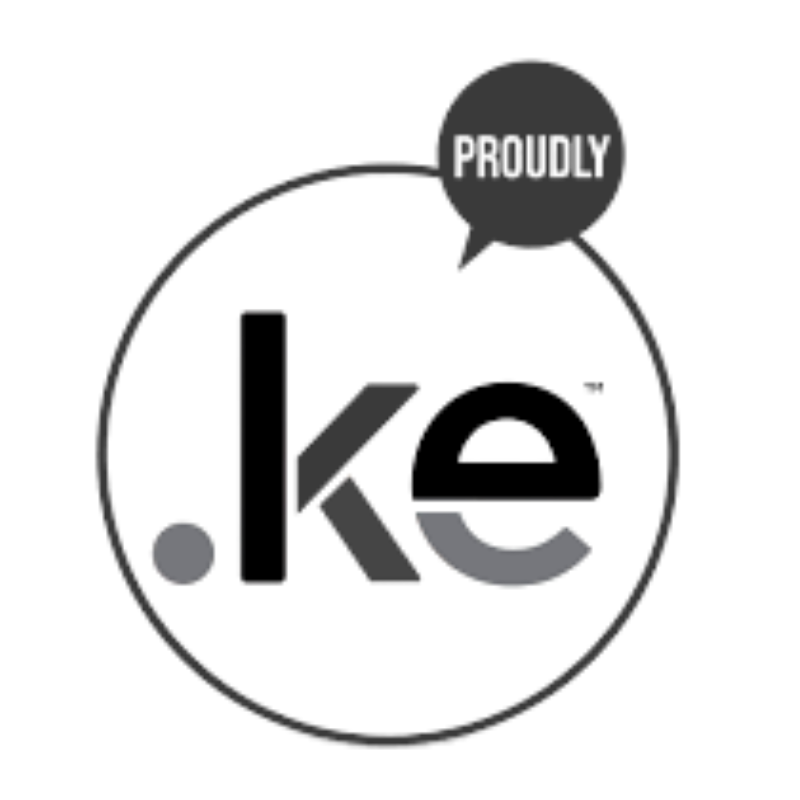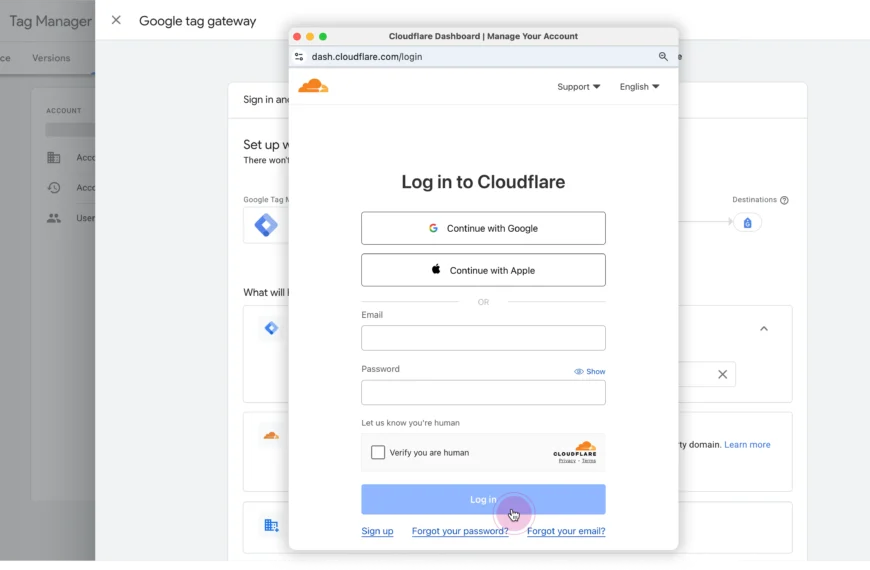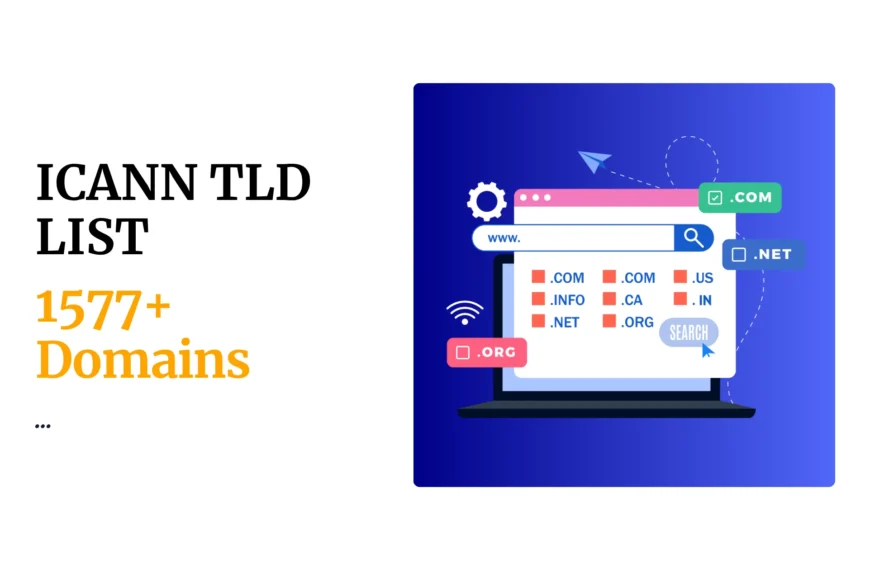Finding the right domain extension can elevate your online brand, boost your visibility, and make your developer portfolio stand out in a crowded digital world.
You want your web address to reflect your expertise, your projects, and your personality as a developer.
In this guide, we’ll break down the best TLDs for developers, explore their unique benefits, see real-world use cases, and help you get actionable steps to secure the perfect domain for your next project.
Why your choice of TLD matters as a developer
Your TLD — or top-level domain—is the last part of your domain name, like .com, .dev, or .io. For developers, the right TLD:
- Signals your niche or area of expertise
- Boosts your professional image instantly
- Helps you connect with the right community
- Makes your domain more memorable and brandable
- Improves trust with your audience and potential clients
Your domain is often your first impression online.
A generic .com might work, but it won’t always set you apart in the fast-evolving tech scene. Using developer-focused TLDs can highlight your skills, attract more relevant visitors, and open up creative branding opportunities.
What makes a TLD “developer-friendly”?
Certain TLDs have become popular among developers, startups, and tech companies because of:
- Industry association: Some TLDs have meanings or histories linked to tech, coding, or specific communities (like
.iofor startups or.aifor artificial intelligence projects). - Professional appeal: Extensions like
.devand.techshow instantly that you’re part of the tech ecosystem. - Security: TLDs such as
.devand.appenforce HTTPS, protecting your visitors by default. - Availability: Many new TLDs have more domain options available, letting you grab shorter or more creative names.
- SEO friendliness: Most modern TLDs perform well in search engines, provided your content is high quality.
Top TLDs every developer should consider
You don’t have to stick with .com. Explore these popular, developer-centric TLDs and see how each fits different projects and audiences:
.dev
.dev is quickly becoming the go-to for developer portfolios, project showcases, and tech blogs.
- Owned by Google and designed specifically for developers
- HTTPS required by default — more secure for your visitors
- Signals tech expertise immediately
Great for:
Personal portfolios, open-source projects, tech tutorials, event websites.
Example:
ViteJS.dev — Showcasing a cutting-edge build tool.
.io
.io started as the country code for the British Indian Ocean Territory, but it’s now a favorite for tech companies and SaaS projects.
In developer circles, “IO” hints at “input / output,” adding an extra techie vibe.
- Widely used in startups and SaaS products
- Short, memorable, and global appeal
- Easy to brand and recognize in the tech world
Great for:
Tech startups, API endpoints, product pages, developer tools.
Example:
Replit.io — Cloud coding environment for developers.
.app
.app is ideal if you’re building a web or mobile application.
- Requires HTTPS — adds instant trust
- Perfect for apps, tools, and digital products
- Backed by Google for reliability
Great for:
App landing pages, SaaS products, launch sites.
Example:
ToDoist.app — Popular task management tool.
.ai
.ai stands for artificial intelligence, but you don’t need to build robots to use it. It’s one of the hottest TLDs for machine learning, data science, and cutting-edge tech.
- Recognized in the AI/ML community
- Ideal for showcasing smart apps or research
- Premium branding for forward-thinking developers
Great for:
AI/ML projects, research portfolios, data-driven apps.
Example:
OpenAI.ai — AI research and deployment company.
.tech
.tech is an all-purpose, tech-focused TLD for any developer wanting instant recognition as part of the technology ecosystem.
- Universal tech branding
- Great for resumes, portfolios, and blogs
- Flexible and easy to remember
Great for:
Developer resumes, project portfolios, code blogs, digital agencies.
Example:
Dev.to — Developer community (originally on .to, but .tech is a close fit for similar sites).
.me
.me helps you build a personal brand, letting your audience know there’s a real person behind the code.
- Personal, human, and relatable
- Perfect for personal blogs, CVs, or resumes
- Often more domain names available
Great for:
Personal websites, about-me pages, freelance portfolios.
Example:
JohnDoe.me — Portfolio or resume for a developer.
.xyz
.xyz is a modern, flexible TLD popular in the web3, crypto, and experimental project world.
- Affordable and widely available
- Edgy and creative feel
- Embraced by Google’s parent, Alphabet (abc.xyz)
Great for:
Side projects, experimental tools, web3 projects.
Example:
abc.xyz — Alphabet’s corporate site.
.codes
.codes tells everyone exactly what you do—write code.
- Super clear for code-sharing sites
- Niche, but perfect for tutorials, snippets, and dev blogs
Great for:
Code repositories, learning platforms, coding challenges.
Example:
Leet.codes — Could be a resource for coding interview practice.
.sh
.sh started as a country code for St Helena, but developers love it for its double meaning—Unix shell scripts.
- Great for CLI tools, developer utilities, and bash scripts
- Short, snappy, and instantly techie
Great for:
Command-line tools, bash resources, Linux-focused projects.
Example:
Homebrew.sh — The official site for Homebrew, a popular package manager for Mac.
.cloud
.cloud is perfect if you’re into cloud computing, SaaS, or infrastructure as code.
- Cloud-native branding
- Strong for SaaS, hosting, and DevOps projects
Great for:
SaaS landing pages, cloud toolkits, infrastructure startups.
Example:
Nextcloud.com — While it uses .com, .cloud is an excellent fit for similar products.
Comparison table: best TLDs for developers
| TLD | Focus area | Trust/Security | Ideal for | Notes |
|---|---|---|---|---|
.dev | General development | High (HTTPS) | Portfolios, projects, blogs | Google-owned |
.io | Tech, startups, APIs | High | Startups, SaaS, web tools | Input/output pun |
.app | Web/mobile apps | High (HTTPS) | App pages, SaaS, tools | Google-owned |
.ai | AI/ML/data science | High | AI projects, research, portfolios | Premium, in-demand |
.tech | All things technology | High | Resumes, portfolios, code blogs | Broad appeal |
.me | Personal branding | Medium | Personal sites, CVs | Relatable, human |
.xyz | Creative, experimental, web3 | Medium | Side projects, crypto/web3 | Affordable, modern |
.codes | Code-focused communities | Medium | Tutorials, repositories, dev tools | Niche, specific |
.sh | Unix, CLI, scripts | Medium | CLI tools, bash resources | Short, memorable |
.cloud | Cloud computing/SaaS/DevOps | High | SaaS, infra, cloud tools | Cloud-native branding |
Real-world use cases: How top developers leverage TLDs
You’ll notice that many open-source frameworks, developer tools, and SaaS products now opt for modern TLDs:
- vitejs.dev — Modern web tooling with developer-focused branding
- reactjs.org — Uses
.orgfor open-source credibility (but.devor.iocould work for similar frameworks) - zeit.co (now Vercel.com) — Tech startups choosing short, memorable TLDs
- homebrew.sh — Plays on shell scripting for a command-line tool
When you pick a TLD that matches your project’s vibe, you send a clear message to visitors. You’re not just another site—you’re part of the global developer ecosystem.
How to choose the best TLD for your developer brand
You want to avoid random or irrelevant TLDs. Here’s how to pick one that works for you:
- Identify your core audience
- Are you targeting employers, other developers, or end users?
- Do you want to signal specific skills (like AI, web3, or cloud)?
- Match the TLD to your project’s identity
- AI or machine learning?
.aisends the right signal. - Showcasing open-source?
.devor.iois a strong choice. - Launching an app?
.appwill boost credibility. - Building CLI or bash tools?
.shgives a techie twist. - Creating a personal site?
.memakes your portfolio human.
- AI or machine learning?
- Check security and trust factors
- TLDs like
.devand.apprequire HTTPS—your site will be more secure, and Google may give you a trust boost. - Don’t pick extensions associated with spam or poor reputations.
- TLDs like
- Think about memorability and branding
- Shorter names are easier to type and remember.
- Pair your project name with a fitting TLD for instant recognition.
- Ensure SEO compatibility
- Google treats most new TLDs as equal to
.com(see Google’s advice). - Focus on your site’s content, speed, and user experience.
- Google treats most new TLDs as equal to
Where to register your developer TLD
You have more options than ever for registration. Here are a few trusted providers:
- Truehost — Affordable domains and hosting with developer-friendly support
- Host Pinnacle — Great for Kenyan and African developers, with strong customer service
- Namecheap — Global registrar with wide TLD selection and transparent pricing
- Google Domains — Especially handy for
.devand.app
When choosing a registrar, look for:
- Transparent pricing (beware of huge renewals)
- Simple DNS management
- Free WHOIS privacy, if available
- SSL certificates and support for custom emails
Actionable steps to claim your developer TLD
- Brainstorm your brand name or project name.
- Pick 2–3 TLDs that fit your niche and audience.
- Search for availability on a domain registrar (use the platforms above).
- Register your domain—don’t wait, the best names go quickly.
- Set up SSL (required for
.dev,.app, and recommended for all). - Connect your site to a hosting provider—use Vercel, Netlify, or GitHub Pages for developer-focused workflows.
- Launch your site and update your online profiles (GitHub, LinkedIn, Twitter) with your new domain.
Frequently asked questions
Are developer TLDs more expensive?
Some, like .ai or .io, can be pricier than .com or .dev. However, you’ll find plenty of affordable options like .xyz, .codes, and .me.
Will a new TLD hurt my SEO?
No. Google has confirmed that new TLDs are treated the same as legacy TLDs, so focus on content and site quality.
Can I get custom email addresses with these TLDs?
Yes. You can set up professional email like [email protected] or [email protected].
Do I need SSL?
Yes, especially for .dev and .app (where it’s required), and for user trust on all sites.
Quick summary table: developer TLDs at a glance
| TLD | Best for | Notable feature |
|---|---|---|
.dev | Portfolios, projects | HTTPS enforced, Google-owned |
.io | SaaS, APIs, startups | Techie, trendy, flexible |
.app | App/product sites | HTTPS enforced, app branding |
.ai | AI, ML, research | Signals AI/ML expertise |
.tech | Resumes, general tech | Universal, broad appeal |
.me | Personal branding | Human, friendly, memorable |
.xyz | Experiments, web3 | Modern, creative, affordable |
.codes | Code, tutorials | Very specific, clear message |
.sh | CLI tools, scripts | Unix shell double meaning |
.cloud | SaaS, DevOps, infra | Cloud-native, modern |
Final thoughts: Building your developer brand with the right TLD
Choosing the best TLD for developers is a strategic move—don’t let it be an afterthought. You’re telling the world you care about craft, community, and staying ahead of the curve. Grab a domain that fits your skills, matches your vibe, and is easy for collaborators or clients to remember.
When you combine a sharp domain with a great portfolio or product, you become instantly more discoverable and credible in the tech world.
Ready to register?
Start your search at Truehost, Host Pinnacle, or Namecheap and secure your next big idea with a domain that shows you’re a developer who stands out.
 Domain SearchInstantly check and register your preferred domain name
Domain SearchInstantly check and register your preferred domain name Web Hosting
Web Hosting cPanel HostingHosting powered by cPanel (Most user friendly)
cPanel HostingHosting powered by cPanel (Most user friendly) KE Domains
KE Domains Reseller HostingStart your own hosting business without tech hustles
Reseller HostingStart your own hosting business without tech hustles Windows HostingOptimized for Windows-based applications and sites.
Windows HostingOptimized for Windows-based applications and sites. Free Domain
Free Domain Affiliate ProgramEarn commissions by referring customers to our platforms
Affiliate ProgramEarn commissions by referring customers to our platforms Free HostingTest our SSD Hosting for free, for life (1GB storage)
Free HostingTest our SSD Hosting for free, for life (1GB storage) Domain TransferMove your domain to us with zero downtime and full control
Domain TransferMove your domain to us with zero downtime and full control All DomainsBrowse and register domain extensions from around the world
All DomainsBrowse and register domain extensions from around the world .Com Domain
.Com Domain WhoisLook up domain ownership, expiry dates, and registrar information
WhoisLook up domain ownership, expiry dates, and registrar information VPS Hosting
VPS Hosting Managed VPSNon techy? Opt for fully managed VPS server
Managed VPSNon techy? Opt for fully managed VPS server Dedicated ServersEnjoy unmatched power and control with your own physical server.
Dedicated ServersEnjoy unmatched power and control with your own physical server. SupportOur support guides cover everything you need to know about our services
SupportOur support guides cover everything you need to know about our services






